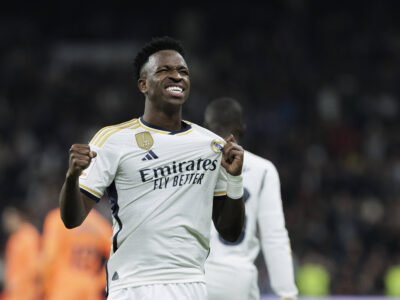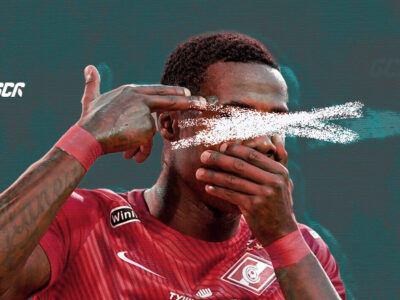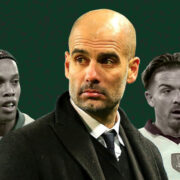I went to watch my cousin’s U10 game last Saturday. I stood on the sidelines, shocked, as I watched these kids play it out from the back.
But what shocked me more was hearing the coach dress down the number 7 for attempting to nutmeg an opponent when a pass was on with the striker.
Now, I understand the sentiment behind playing “effective” football. But this single transition in play epitomized my problem with modern football. If the kids can’t enjoy the game at such a young age, they’ll lose every ounce of creativity before they go pro.
I blame Pep Guardiola and Barcelona for the demise of the beautiful game.
Football, once celebrated for its unpredictable magic and dazzling artistry, is becoming too boring to watch.
This can be attributed to a shift in priority for modern players and coaches. Players are more focused on padding their stats, while coaches are more concerned with tactics.
The result is a formulaic, rigid game, lacking the spontaneity and flair that once defined it.
What happened to the game I love?
The Shift in Player Priorities: Stats Over Skills
In the contemporary football landscape, players are often judged by their statistical output— goals, assists, and efficiency.
While this emphasis on numbers has undeniably led to remarkable performances, it has also led to a decline in the entertainment value of the game.

Players today are more inclined to take fewer risks, preferring to play it safe to ensure their statistics reflect positively.
Consider the evolution of attacking players.
In the past, forwards were celebrated for their creativity and ability to dazzle the audience with their dribbling skills and audacious attempts.
Ronaldinho, for instance, was not just a goal-scorer; he was a magician with the ball. His no-look passes, elasticos, and joyous flair made watching him a thrilling experience.
Ronaldinho played with a smile, reminding fans that football is not just about winning but also about entertaining the audience—joga bonito.
Pelé and Maradona, two of the greatest players in history, were known for their extraordinary dribbling and playmaking abilities.
Pelé’s goal-scoring record is legendary, but what truly set him apart was his inventive play style. He brought the beauty of the Brazilian way of football to the world stage, mesmerizing audiences with his skill.

Similarly, Maradona’s “Goal of the Century” against England in the 1986 World Cup is a testament to his dribbling genius and flair for the dramatic.
Today, players with such a penchant for individual brilliance are increasingly rare. You can only see them on “Streets Will Never Forget” compilations.
The Tactical Revolution: Coaches’ Focus on Structure
Modern football has witnessed a tactical revolution. Coaches now prioritize structure, organization, and efficiency over individual flair.
The focus on tactical discipline has led to the development of highly sophisticated defensive systems, making it more difficult for players to express themselves freely on the pitch.
Pep Guardiola, despite his emphasis on possession-based football, exemplifies the modern tactical approach. His teams dominate possession and often control games through meticulous passing patterns.

This “death by a thousand passes” football is boring to watch as the other team has to sit back for 90 minutes and hope to catch them on the break.
While this style can be mesmerizing in its efficiency, it can also become predictable and monotonous, lacking the unpredictability that makes football thrilling.
But Pep can’t hold the blame alone.
On the other end of the spectrum, José Mourinho exemplifies this tactical shift. Known for his defensive strategies and emphasis on organization, Mourinho has achieved considerable success.
However, his teams are often criticized for playing unattractive, pragmatic football. This approach, while effective, limits the scope for creativity and entertainment.
The xG Philosophy: The Impact of Data and Analytics
The rise of data and analytics in football has further contributed to the game’s predictability. Teams now analyze every aspect of the game, from players’ movements to their decision-making processes.
While this has led to improved performance and understanding of the game, it has also reduced the element of surprise.

Players are now coached to make decisions based on statistical probabilities rather than intuition or flair. They’re more worried about their Opta stats than entertaining the fans.
This data-driven approach can stifle creativity, as players are less likely to attempt risky, unpredictable moves. The focus on high-percentage plays has made the game more efficient but less entertaining.
Nostalgia for the Entertainers
Reflecting on the past, football’s most entertaining eras were characterized by players who brought joy and excitement to the pitch.
The 1970s Brazilian team, often regarded as the greatest national team ever, played with a style and flair that captivated audiences worldwide. Their fluid, attacking football, embodied by players like Pelé, Jairzinho, and Tostão, epitomized the beautiful game.

In the 1990s and early 2000s, George Weah, the only African player to win the Ballon d’Or, dazzled fans with his combination of speed, power, and technical skill. Weah’s ability to take on defenders and score spectacular goals made him a joy to watch.
Ronaldinho’s ability to entertain while being highly effective set him apart in an era increasingly focused on results. One of his most memorable displays was that game that earned him a standing ovation at the Bernabeu.
The Diminishing Role of Flair Players
In today’s game, players with the flair and creativity of past legends are becoming rarer. Neymar and Lionel Messi are among the few current players who consistently exhibit such qualities.
Neymar’s dribbling and showmanship bring back memories of Brazilian greats, while Messi’s dribbling and vision are reminiscent of Maradona. However, even these players are often criticized for not conforming to the more rigid tactical demands of modern football.

Young talents like Vinícius Júnior show promise in rekindling the spirit of flair in football. Vinícius’ ability to take on defenders with skill and speed is a throwback to the days of Brazilian samba football.
However, their success depends on whether coaches allow them the freedom to express themselves on the pitch. Like in the case of Eden Hazard, this lack of creative freedom can affect their impact on the team.
The Fans’ Perspective
The modern football fan, with access to advanced analytics and a plethora of footballing content, has become more knowledgeable and demanding.
While some fans appreciate the tactical intricacies of the game, many still long for the days when football was more about joy and less about efficiency.
Can’t wait for Douglas Costa to start selling dreams again by doing a rainbow flick over some part-timer from Düren, just to then go on to score like 3 goals all season lol pic.twitter.com/lJd5EQKsYJ
— Taísto (@TaistoFCB) October 15, 2020
We all get up when someone attempts a successful trivela or beats their man with a heel-to-heel.
The atmosphere in stadiums has also changed. In the past, fans would rise to their feet in anticipation of a dribble or a piece of individual brilliance.
Today, they’d applaud an intricate passing sequence that beats the press, even if the team is losing.
Till today, no one has yet proved me wrong. No football club in Europe can pass like this😭 even felt bad for Manchester City players, especially Haaland, Alvarez, & Foden. pic.twitter.com/7Buzb5Ral4
— Kara (@UTDKara) March 10, 2024
The emphasis on tactical discipline and the reduction in risky, entertaining plays have made such moments rarer. The result is a more subdued and less passionate fan experience.
Breaking the Monotony: Solutions for a More Entertaining Future
To restore football’s entertainment value, a balance must be struck between tactical discipline and creative freedom. Coaches should encourage players to take risks and express themselves on the pitch.
Developing young players with a focus on creativity and flair, rather than just physical and tactical attributes, is crucial. Hopefully, young talents like Lamine Yamal, Jamal Musiala, Florian Wirtz, and the like will pick up the baton of entertaining football.

Football authorities and clubs should invest in creating conducive environments for flair players to thrive. This includes reducing the excessive pressure on results and statistics and, instead, celebrating moments of individual brilliance and creativity.
But with the high stakes involved in the modern game, individual flair will continue to fade until it becomes a non-factor in football.
In the meantime, I have to remind my 10-year-old cousin to enjoy the game and stop worrying about his pass completion stats.
Who wrote this?
Desmond is a lawyer whose first love is the young boy from Rosario. He loves writing about the legal profession and sports.






















